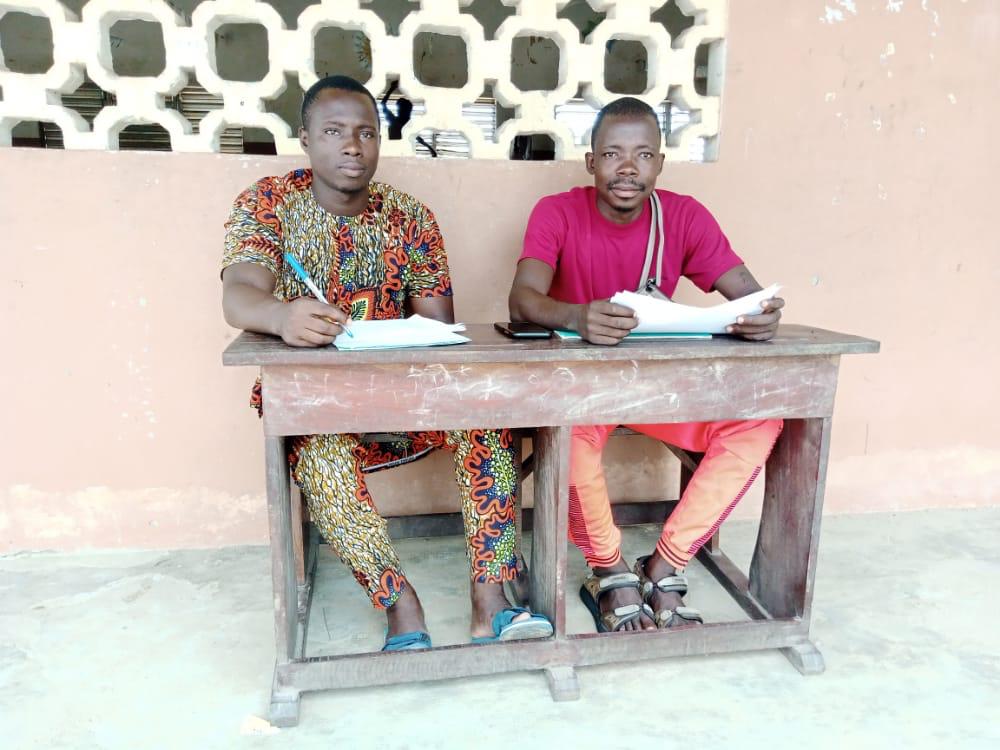Will citizens come forward with information to digitise the land registry?
Local authority: Sèmè-Podji City Council
Country: Benin
Sèmè-Podji has a paper-based system for land registry, which is challenging to administrate for the city as they cannot effectively secure property rights and collect taxes. Additionally, land owners cannot easily access their titles, which hinders their ability to guarantee loans.
The focus of the Local Action Plan is to establish a digital land registry and build an e-land platform at the town-level, so Sèmè-Podji can conduct secure and verifiable transactions, make land information accessible to all, and provide services to the population more easily. A key part of this plan involves working closely with the Agence Nationale du Domaine et du Foncier (ANDF), who have been collecting land documents from the Communes nationally. The hope is that the locally collected data can be entered into this national database.
The focus of experimentation was testing the willingness and ability for citizens to share their titles of ownership or presumption of ownership, which can then be digitised to build a digital land registry for Sèmè-Podji.
ASSUMPTION: Citizens are willing and able to contribute to the digitisation of land ownership titles
How the Local Action Group tested it
• Identified a partner to run the data collection process
• Ran a communications campaign in the pilot area, including local radio messaging, a town crier, and a community meeting
• Published the data collection plans so that citizens could feed back into them
• Set-up data collection points in the pilot area
What they learned
Transparent and clear communication is key to ensuring citizen buy-in. There was an initial unwillingness to come forward and share data because citizens doubted the motives of the collectors. The team found that some citizens were coming forward and referencing old land directories that had inaccurate information, or listing land status numbers that were not real. However, a sustained communications campaign at several levels, and opportunities for citizens to feed into the overall process, drove up the participation of citizens. Overall, titles of ownership or presumption of ownership in the collection area covered 71% (552 out of 779) of plots, suggesting that people were aware of the data collection process and were willing to share information.
Leveraging key community stakeholders can help overcome bureaucratic challenges. The team found some difficulties working within the commune from a bureaucratic perspective, and a key learning from this small-scale process was the need to engage local stake- holders. Indeed, the Local Group had to be strategic in order for the village council to participate effectively in the collection operation, working with traditional chiefs and local kings to convince the population to go out and share information. These are respected voices who should be involved in future strategies to get people to come and share information.

Data collection and stakeholders meeting during the experimentation phase in Sèmè-Podji, May 2022
Was the assumption validated?
Yes the team learnt that:
People are willing to come forward and share their land ownership documents. After difficulties, the team managed to get 71% of deeds shared in a small space of time.
What next?
Sèmè-Podji City Council will continue to engage citizens and collect data. They also plan to keep working with stakeholders who can communicate the campaign to citizens, with the idea that eventually all will be directed directly to the town hall for large-scale sharing of land data.
Next, the local authority will need to test how to integrate the e-land service platform they are hoping to build with ANDF databases at the national level. The plan therefore is to continue data collection to build out the local platform and continue sharing data with the national agency.



